Is it Legal to Live in Your Car? [Avoid These Mistakes]
![Is it Legal to Live in Your Car? [Avoid These Mistakes]](/content/images/size/w1200/2022/10/Vehicle-dweller-in-her-car-1.JPG)
As of 2022, there were roughly 13 million nomads living in the U.S. And this number represents only those that we're aware of, since there are many people residing in vehicles who are unaccounted for.
If you're planning on becoming a vehicle dweller yourself, you're probably wondering if it is legal to live in your car. The answer is YES, anyone can choose to make a vehicle their home, and has the right to do so. There are laws and ordinances however, that can limit where, or for how long you can park your car.
Let's explore this topic a bit deeper, so you can fully understand the do's & don't's of calling a car your castle...
WHAT IS A VEHICLE DWELLER?
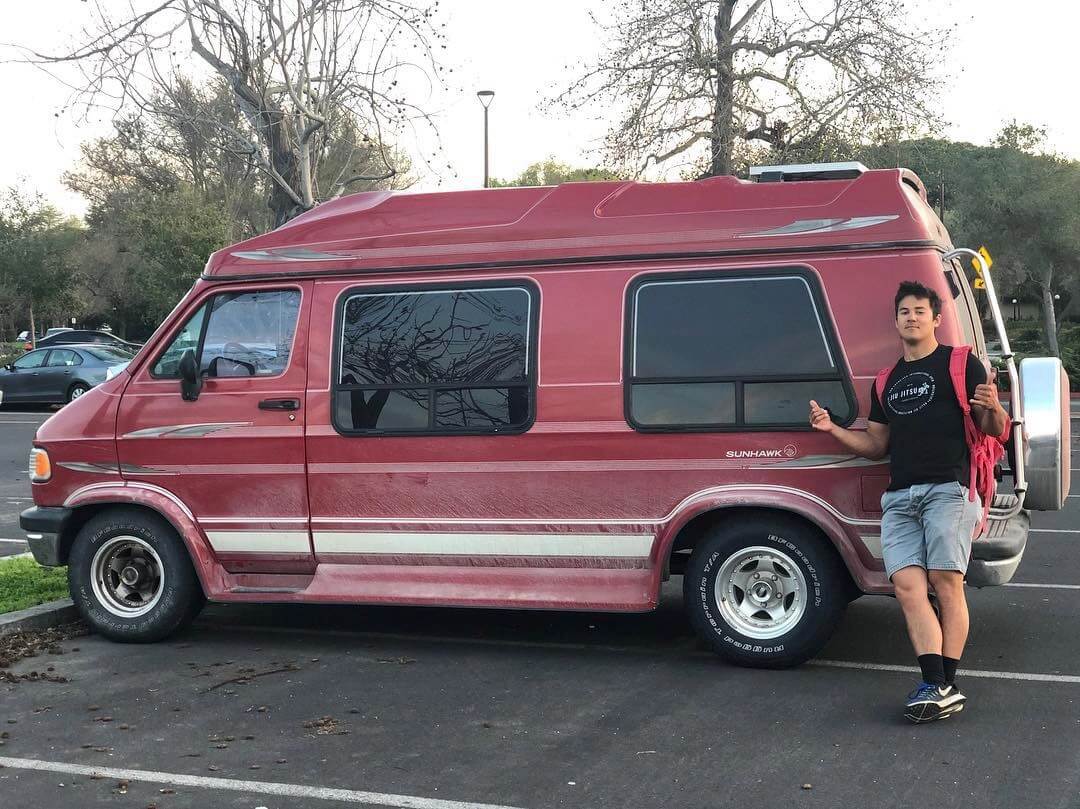
Acorrding to Wikipedia, a vehicle dweller is defined as such: a vehicle dweller, or car dweller, is a person who lives out of a car or other vehicle.
Other terms often used are; nomad, digital nomad, car camper, vehicle vagabond & wanderer.
Vehicle dwellers live in cars, vans, RV's, box trucks and even converted schoolbuses & ambulances.
While there are some people who do this part-time, the vast majority of vehicle dwellers are full-timers, and live in their cars either by choice, or because of necessity. Many have lost homes or apartments due to cost of living factors, loss of a job, being saddled by debt, etc.
The common misconception is that most vehicle dwellers tend to skew younger in age, but in actuality, there's an ever widening segment of middle-aged and seniors who have entered this lifestyle. While reasons for this vary, a common thread is usually the death of a spouse, meager fixed incomes that prevent living in a house, or the desire to enjoy life more fully in one's golden years.
IS LIVING IN YOUR CAR AGAINST THE LAW?
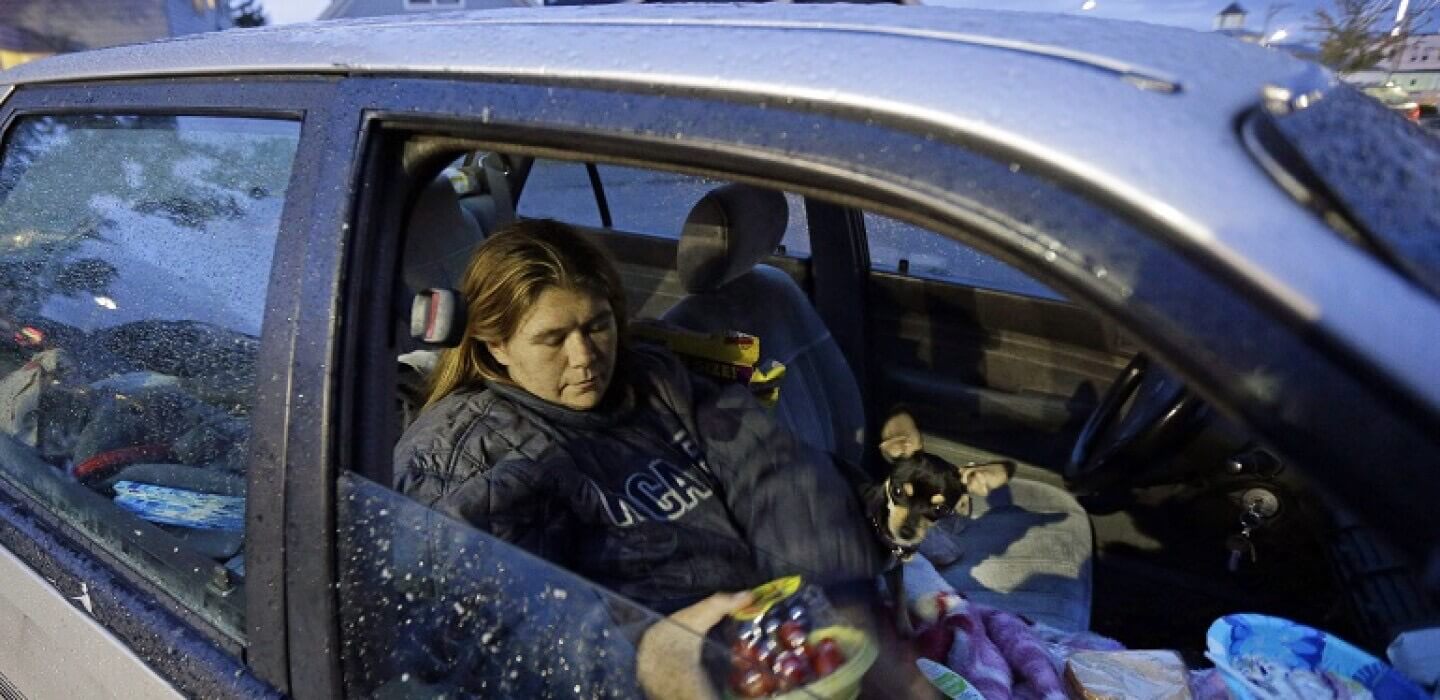
Anyone is free to live in a vehicle, if they so desire. It is not illegal by any means. But there are a few catch-22's that can complicate things. Namely, where you can park and for what duration.
For example, some towns and cities across the United States have ordinances and prohibitions that limit someone from sleeping in a car on residential streets. Or, businesses might ban overnight parking, which in effect, means that you cannot sleep in your vehicle at these premises.
Due to these rules, you should obviously be extremely mindful of where you choose to lay your head at night. Picking the wrong spot to get some sleep could lead to a large fine, or even your car being towed and impounded!
Stemming from the explosion in popularity for vehicle dwelling in recent years, it's becoming increasingly more difficult to find places to overnight in your car, so it's more important then ever that you know the rules.
WHAT HAPPENS IF I'M CAUGHT SLEEPING IN A VEHICLE?
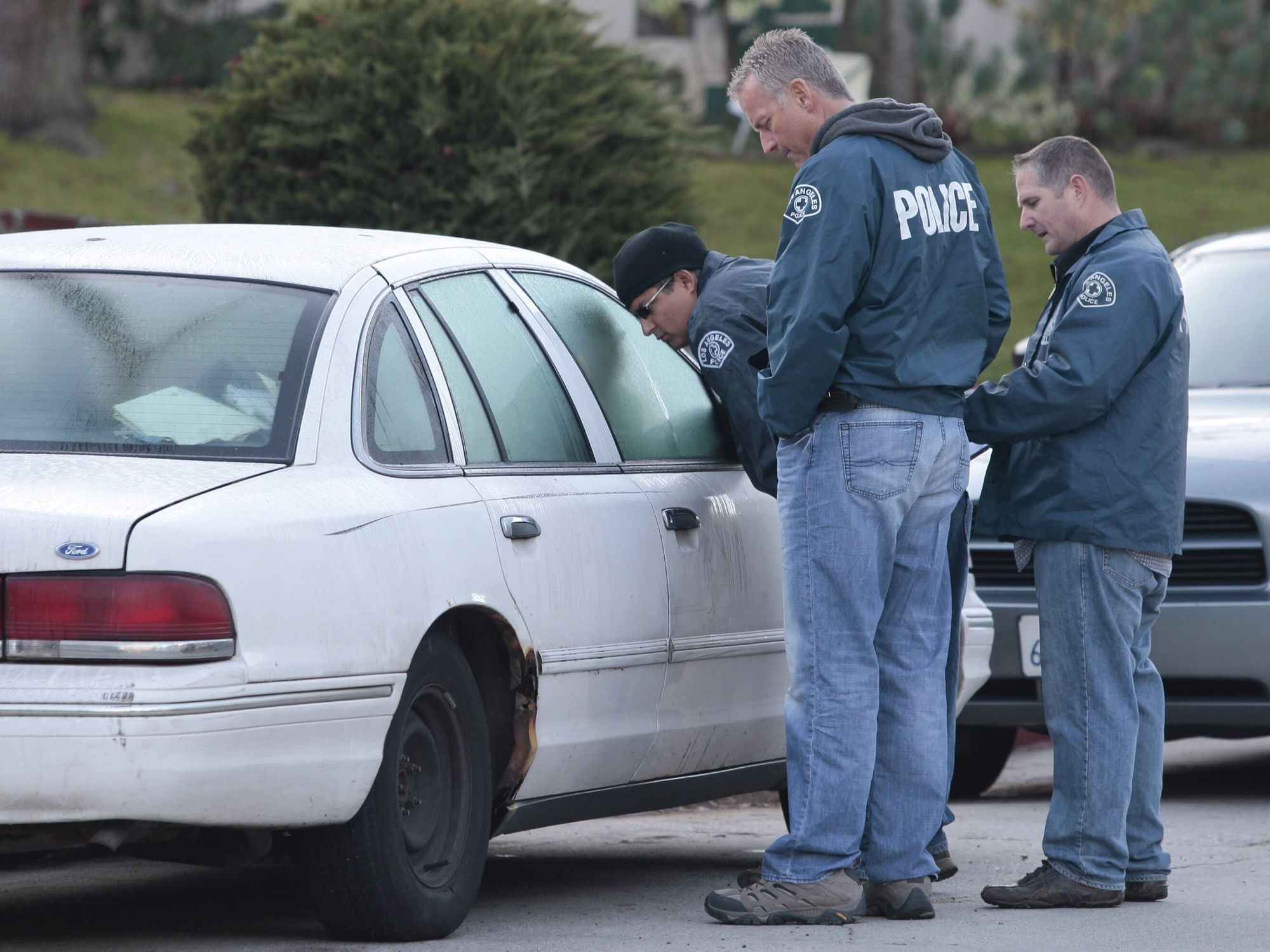
As noted earlier, there is no law preventing someone from living in a car or other vehicle, however, if you are caught sleeping in a vehicle on the premises of a business (or any other place) that doesn't allow overnight parking, then there might be a variety of consequences.
In most cases, provided you aren't under the influence, have any outstanding warrants, and the vehicle is fully licensed & insured, the majority of police officers will simply tell you to move someplace else and let you off with a warning if you've parked in an area that doesn't allow it. But they also have the ability to issue you a summons or ticket. Being truthful, calm and respectful with law enforcement officers will go a long, long way.
On the other hand, if you've already been rousted by law enforcement before on the same matter, and/or don't handle the situation in a civil matter, then not only would a ticket or summons be possible, but your vehicle could be towed and impounded too.
CAN I SLEEP IN A VEHICLE ON A RESIDENTIAL STREET?
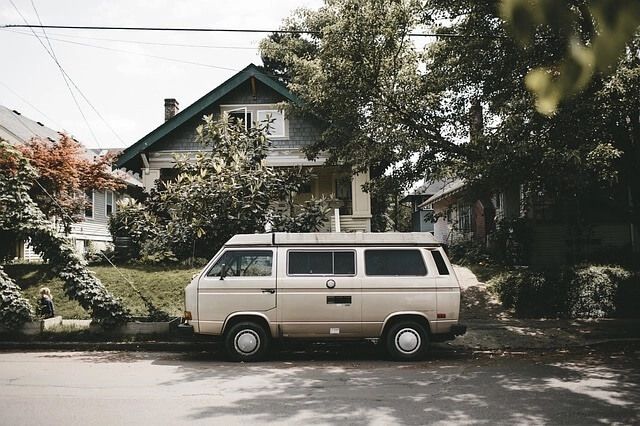
Yes, provided there aren't any signs saying otherwise, you're generally free to park (and sleep) in your vehicle on a residential street. Just know that many communities across the country have starting cracking down on this practice, since there has been thousands of other vehicle dwellers doing the same thing, and local homeowners and other citizens consider this practice an eyesore. While you should be fine in most cases, it's best to practice stealth parking rules when sleeping in residential neighborhoods.
CAN I SLEEP IN A WALMART PARKING LOT OR TRUCK STOP?

While the answer to both places is a yes, it IS a bit more complicated than that, so I'll break this up into two parts...
- Lots of Walmart stores still allow overnight parking, which means that getting some sleep in their parking lots is just fine. However, many car campers have taken advantage of this generous policy over the past few years by staying at one location for weeks on end (or longer), and basically setting up shop on their properties. To combat this, scores of Walmart's have since prohibited parking for more than a few hours at a time.
Further, Walmart (and other retailers) have increasingly been hiring private security patrols to prevent customers from using their properties as nomad hotels. As no two Walmart's are alike, and each store has separate rules when it comes to overnight parking, it's up to YOU to know the guidelines before settling in for the night.
- Truck stops are safe havens for travelers. Millions of people frequent them every year. From pulling off the road during a long trip for a quick stretch, to using the restrooms, or even eating at the on-site restaurants, these highway pit stops should be on every vehicle dweller's list.
Almost universally, truck stops allow overnight parking. If you're looking to get some Z's at one, you'll have no problems.
You'll find truck stops in virtually every state within the U.S., and for the most part, they're all clean, secure places bustling with activity...even well into the early hours. This means you can get a good night's sleep without worrying about safety to yourself or your belongings.
FINAL THINGS TO KNOW
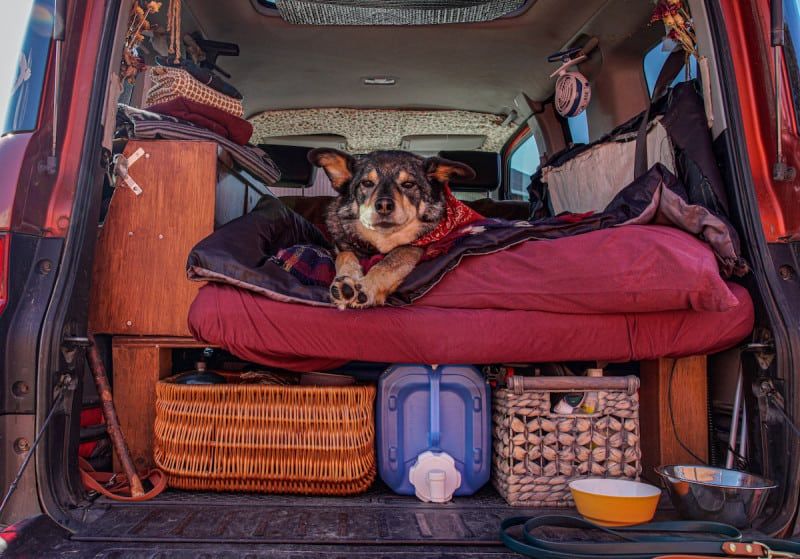
If you'll be living in your car, it's not a matter of if, but WHEN you'll get a door knock from security patrol or a cop. It happens eventually to 99% of nomads, and how you deal with it might be the difference between a kind "move someplace else", receiving a stiff summons, getting your vehicle towed, or even ending up in handcuffs!
Follow these suggestions wisely...
-
Never, EVER keep any illegal substances or weapons in your vehicle! Not only is this dumb, but doing so will land you behind bars if you're caught.
-
Always keep your license, registration & car insurance in an easy-to-find, accessible location. Being rousted during a deep sleep and not being able to locate important documents is embarrassing, time-consuming and nerve-wracking.
-
Never keep large amounts of cash in your vehicle. Aside from the possibility of theft, MANY law enforcement agencies are now seizing large sums of money found in vehicles during stop & searches. What they consider "large" is anyone's guess, but to be safe, I'd recommend not keeping more than a few hundred dollars in your vehicle.
The reason behind this, is because many law enforcement agengies automatically suspect that any sizable amount of monies might be drug proceeds, and can LEGALLY seize this cash. Getting it back (which doesn't always happen) is a long and tedious process. Banks, safety deposit boxes, or even having a trusted relative hold your money are your best bets.
- No matter where you sleep in your car, always be vigilant! While crime isn't as rampant as the sensational news outlets would lead you to believe, the fact is that anyone can become a victim at any time, and in any place. It is paramount that you are always aware of your surroundings. Before bedding down for the night, know the type of environment you're in. Is it a safe area? Are there other people around? Does it look/feel scketchy? Is it a fairly well lit and visible location?
Living in a car today is what backpacking or hitchhiking was in the 60's, 70's & 80's. It represents FREEDOM. And whether you choose to partake in this growing lifestyle part-time or full-time, if you follow the tips in this article, you're sure to be safe and well-slept.
LIVE WISELY, LIVE WELL!

